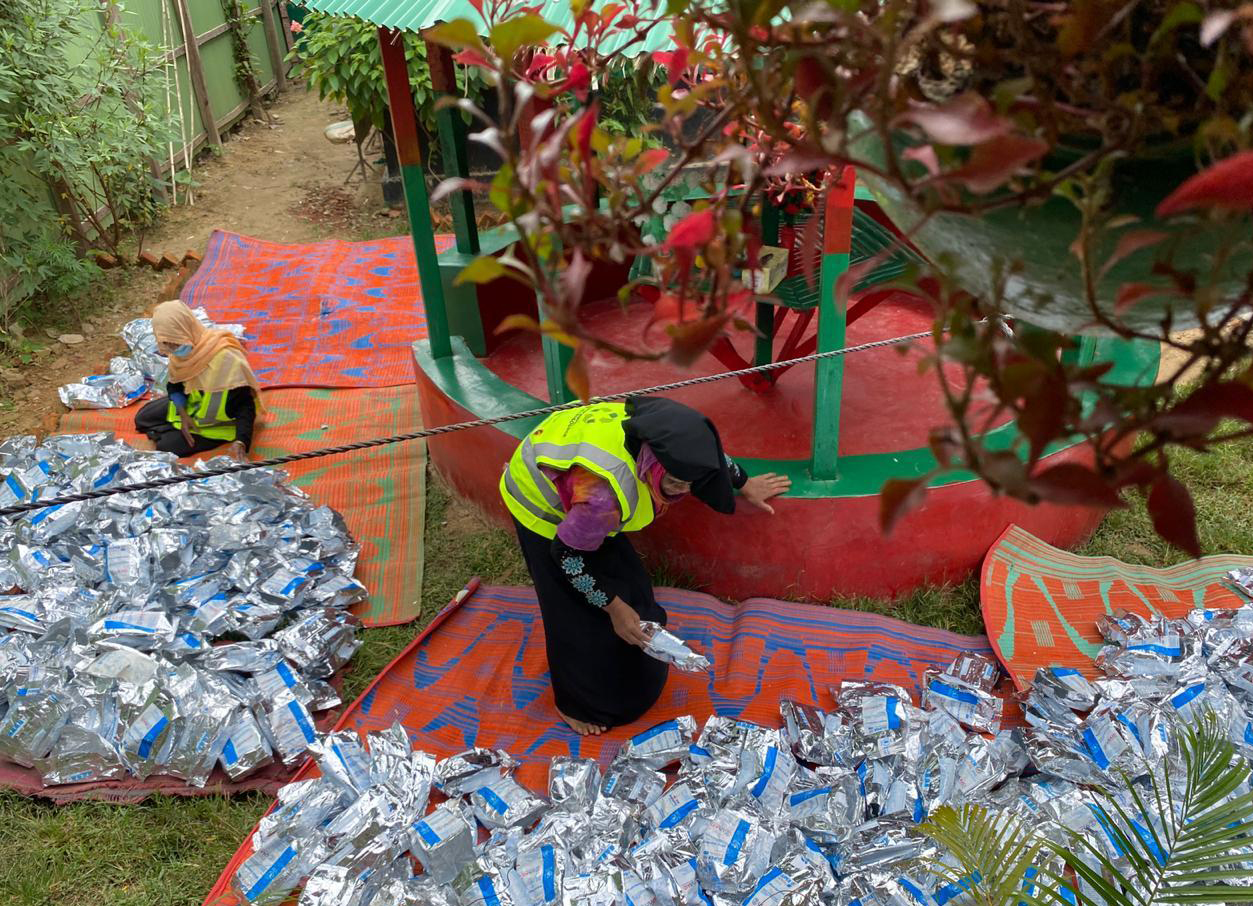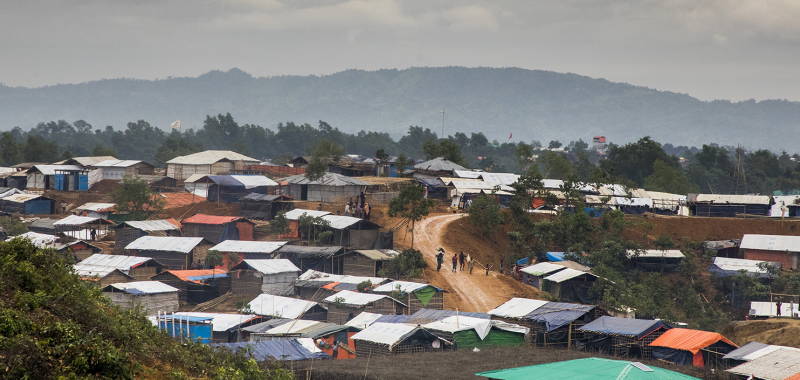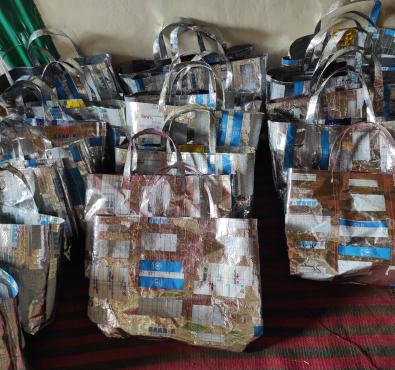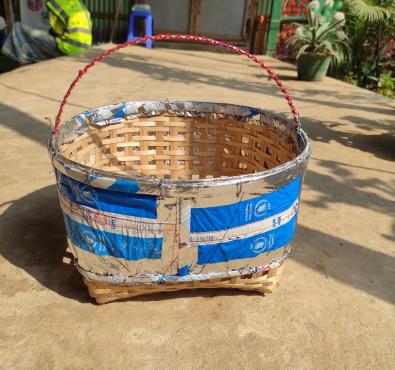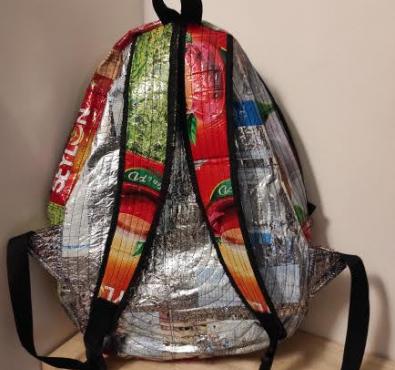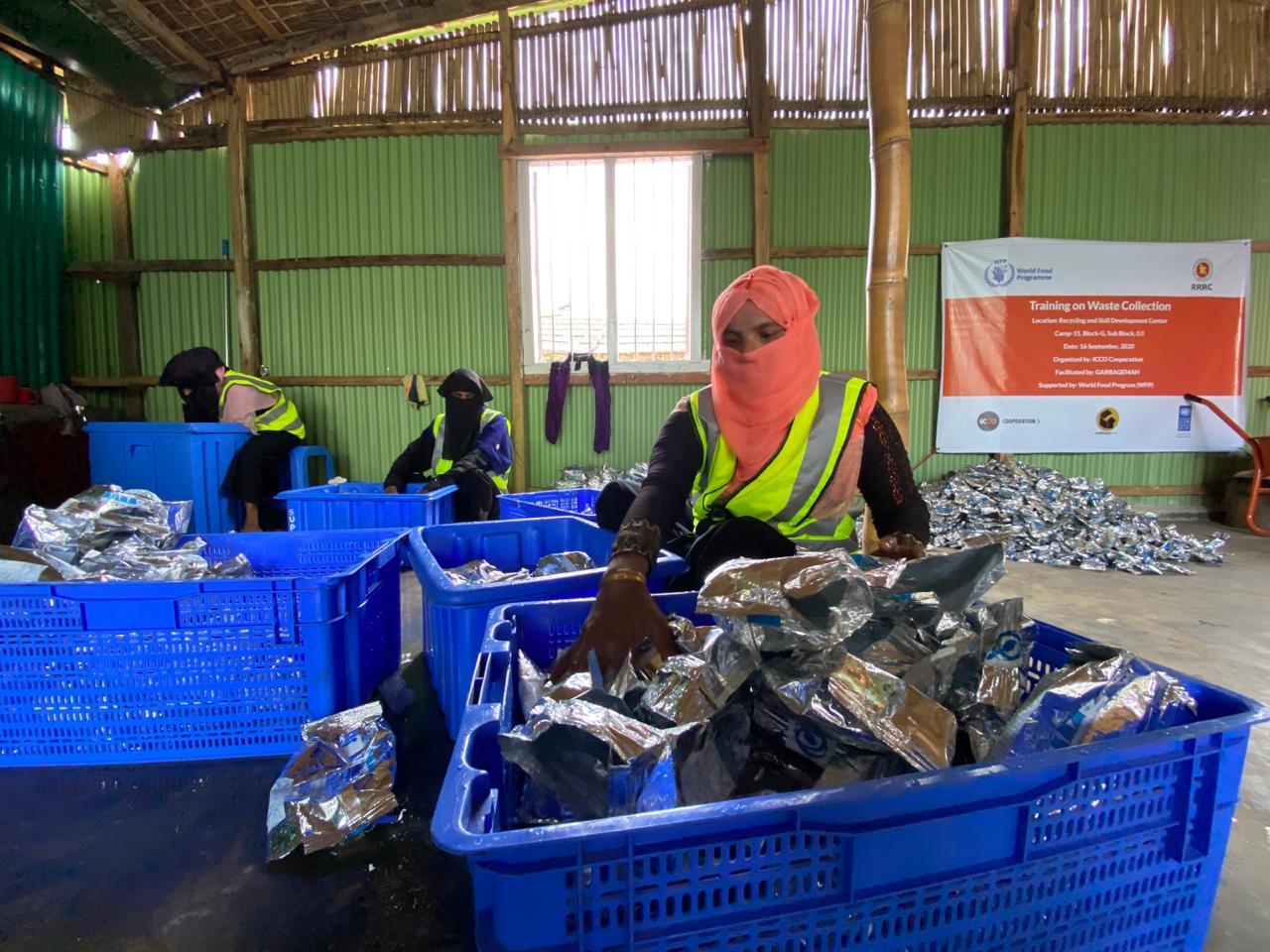With one million people, Cox's Bazar refugee settlement in Bangladesh produces hundreds of tons of solid waste monthly, including from humanitarian distributions.
Waste management remains a challenge in refugee camps. Much of the waste goes to landfills or is left in the open, affecting public health and the environment. Moreover, the household waste that ends up in the canals poses a significant threat of flood during the monsoon season.
At the same time, livelihood opportunities for women and people with disabilities are scarce in Rohingya refugee camps; and youth are often engaged in the informal waste management market, which affects their school attendance.
